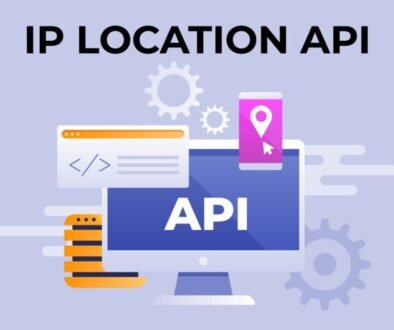How To Create An Online Booking System For Your Business
In today’s fast-paced digital age, having an online booking system for your business is not just a convenience for customers; it’s a necessity. This article will guide you through the steps to create an efficient and user-friendly online booking system that can streamline your operations and enhance customer satisfaction.
Understanding the Importance of an Online Booking System
In today’s digital age, an online booking system has become a crucial tool for businesses across various industries. It revolutionizes the way appointments, reservations, and services are managed. Let’s explore the significance of integrating such a system into your operations.
Benefits of Implementing an Online Booking System
- 24/7 Accessibility: An online booking system allows customers to make reservations or appointments at any time of the day or night, even outside of regular business hours.
- Reduced Workload: It automates the booking process, reducing the need for manual scheduling and freeing up valuable time for staff to focus on other tasks.
- Improved Customer Experience: Customers prefer the convenience of booking online rather than making phone calls or visiting in person. It enhances their overall experience.
- Reduced No-Shows: Automated reminders and confirmations help minimize no-shows, ensuring that time slots are utilized effectively.
- Increased Revenue: By maximizing booking efficiency and reducing idle time, businesses can increase their overall revenue potential.
Meeting Customer Expectations
Modern consumers expect seamless, user-friendly experiences when interacting with businesses. An online booking system aligns with these expectations by offering a convenient and hassle-free way to schedule appointments, make reservations, or avail services.
Choosing the Right Platform
Selecting the appropriate platform for your online booking system is a critical decision. It shapes how effectively the system will integrate with your business operations. Here are some factors to consider:
Factors to Consider in Platform Selection
- User-Friendliness: The platform should be intuitive and easy to navigate for both customers and staff members.
- Customization Options: It should allow for customization to cater to the specific needs and services offered by your business.
- Integration Capabilities: The platform should seamlessly integrate with your website, other software applications, and payment gateways.
Popular Online Booking System Platforms
There are several reputable platforms available in the market. Here are a few widely recognized ones:
- Calendly: Known for its simplicity and ease of use, Calendly offers a range of scheduling options and integrates well with popular calendar applications.
- Acuity Scheduling: This platform provides powerful scheduling capabilities, allowing for customization of appointment types, availability, and more.
- SimplyBook.me: A versatile platform that caters to various industries, offering features like appointment reminders, online payments, and reporting.
Setting Up Your Online Booking System
Creating an online booking system involves several crucial steps, each of which contributes to its overall efficiency and effectiveness.
1. Choosing the Right Platform
Selecting the right platform for your online booking system is paramount, especially when considering the services of an on-demand app development company. Consider factors such as user-friendliness, customization options, and integration capabilities. Some popular platforms include Calendly, Acuity Scheduling, and SimplyBook.me:
2. Setting Up User Accounts and Profiles
Allowing customers to create accounts simplifies the booking process. Ensure that profiles are easy to set up and provide options for saving preferences and payment information securely.
3. Customizing Booking Options
Tailor the booking system to your specific business needs. Define services, availability, and any additional options customers may need to select during the booking process.
4. Integrating with Your Website
Seamlessly integrate the booking system with your website to provide a cohesive user experience. This can be achieved through embedding, widgets, or direct links.
Remember, a well-integrated booking system should feel like a natural extension of your website, not a separate entity.
Designing a User-Friendly Interface
An intuitive and user-friendly interface is crucial for a successful online booking system. Ensure that customers can easily navigate through the booking process, regardless of their level of technological proficiency.
Intuitive Navigation
The booking process should be straightforward, with clear calls-to-action guiding customers from one step to the next. Avoid clutter and distractions that may hinder the booking process.
Mobile Responsiveness
In today’s mobile-driven world, it’s essential that your booking system is optimized for smartphones and tablets. A responsive design ensures that customers can make bookings on the go.
Clear Call-to-Actions
Use concise and action-oriented language to guide users through the booking process. Make it clear what steps they need to take next, and provide easy access to support or additional information if needed.
Adding Automated Notifications
Automated notifications are a key feature of any efficient online booking system. They serve as confirmations, reminders, and can help manage cancellations or rescheduling.
Confirmations and Reminders
Customers appreciate timely confirmations of their bookings. Additionally, sending reminders prior to the scheduled appointment reduces no-shows and ensures a smooth process.
Handling Cancellations and Rescheduling
Clearly communicate your policy on cancellations and rescheduling. Provide easy-to-follow instructions on how customers can make changes to their bookings, and ensure they receive prompt notifications of any updates.
Data Security and Privacy
Ensuring the security and privacy of customer data is paramount in today’s digital landscape. Be sure to comply with GDPR regulations and implement robust measures to protect sensitive information.
GDPR Compliance
Familiarize yourself with GDPR requirements and implement necessary protocols to safeguard customer data. This includes obtaining explicit consent for data collection and providing clear information on how it will be used.
Protecting Customer Information
Invest in encryption technologies and secure servers to protect customer information from unauthorized access. Regularly update security protocols to stay ahead of potential threats.
Testing and Quality Assurance
Before launching your online booking system, thorough testing and quality assurance are essential to identify and rectify any issues.
Conducting User Testing
Engage real users to test the system and provide feedback. This invaluable input can reveal user experience issues that may not be apparent during internal testing.
Identifying and Resolving Bugs
Perform rigorous testing to uncover and address any bugs or glitches. This includes testing various scenarios to ensure the system functions seamlessly under different conditions.
Marketing Your Online Booking System
Once your online booking system is set up, it’s crucial to market it effectively to maximize its benefits.
Promoting Through Social Media
Utilize platforms like Facebook, Instagram, and Twitter to showcase your new booking system. Highlight its convenience and the benefits it offers to your customers.
Utilizing Email Marketing
Send out targeted email campaigns to your existing customer base. Clearly articulate the advantages of using the online booking system and provide easy access links.
Gathering Customer Feedback
Listening to customer feedback is essential for ongoing improvement.
Using Feedback for Improvements
Pay attention to customer suggestions and use them to enhance the booking process. This shows that you value their input and are committed to providing the best possible experience.
Encouraging Reviews and Ratings
Encourage satisfied customers to leave reviews and ratings. Positive testimonials build trust and credibility, making potential customers more likely to use the booking system.
Analyzing Performance Metrics
Regularly monitoring performance metrics provides valuable insights into the effectiveness of your online booking system.
Monitoring Booking Trends
Track booking patterns to identify peak times and popular services. This data can inform decisions on staffing levels and resource allocation.
Measuring Customer Satisfaction
Gather feedback on the booking experience and use it to gauge customer satisfaction levels. Identify areas for improvement and implement changes accordingly.
Scaling Your Online Booking System
As your business grows, it’s important to ensure that your booking system can accommodate increased demand.
Adapting to Growing Demand
Monitor usage trends and be prepared to scale your system to handle increased traffic. This may involve upgrading servers or exploring additional features.
Adding New Features and Services
Stay attuned to customer needs and consider adding new features or services to enhance the booking experience. This demonstrates a commitment to continuous improvement.
Dealing with Common Challenges
Even with a well-designed system, challenges may arise. Knowing how to address them is crucial for maintaining a seamless booking process.
Overbooking and Double Bookings
Implement safeguards to prevent overbooking, such as setting maximum booking limits or incorporating buffer times between appointments.
Handling Technical Issues
Have a protocol in place for addressing technical issues promptly. Provide clear instructions for customers on what to do if they encounter any difficulties.
Conclusion
By following these steps, you can create an online booking system that not only meets customer expectations but also enhances the efficiency of your business operations. Embrace the digital age and provide your customers with the convenience they expect. If you’re seeking professional assistance in this endeavor, consider partnering with a reputable mobile app development company to ensure a seamless and user-friendly experience for your clientele.



